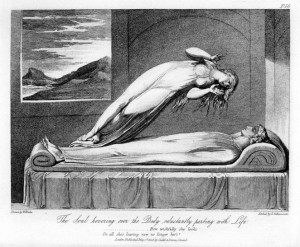So, this is the first draft of a sonnet that I wrote last night. It came out of an idea I had while reading a book on cosmology. Wonder what you think? It’s the first draft only, so I may fiddle with it later. I have called it:
.
Evidence for the existence of ghosts
.
“Ghosts!? You think a corpse can radiate
across The Void (so wide and dark)
a spectre of what’s past? Disincarnate?
And why? To send an omen? Make dogs bark?
Really! No ghoulish world beyond can light
the soulless dark, bewilder nature’s laws, extend
beyond the grave. This lonely truth is right:
Not one thing lasts beyond its natural end.”
I held my tongue. I could have spoken back,
except those long-dead shades whose pallid eyes
that glimmered hushed me from the silent black.
Standing still beneath those star-filled skies
I knew that for those present-long-dead suns
I need not speak. Their argument was won.
.
Copyright (c) Matthew Wingett, 2010, in all media

